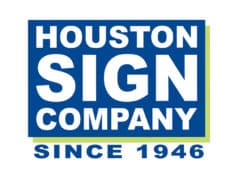
Selling your company might be a difficult job, but it doesn’t have to be. With the right approach and mindset, you can maximize your return on investment (ROI) and find the perfect buyer for your business.It requires a lot of preparation and planning to find the right buyer and ensure that the sale goes smoothly. Finding the right buyer is crucial to get the best possible price for your business and to ensure that your employees and customers are taken care of. In this article, we’ll explore the key steps to selling your business, including how to maximize your business value, how to find the right buyer, and what short selling means in the context of business.
Maximizing Your Business Value
When it comes to selling your business, the most important factor is maximizing your business value. This means ensuring that your business is in the best possible condition before you put it on the market. This includes everything from cleaning up your financials to improving your customer base.
One of the key ways to maximize your business value is to focus on your company’s financials. This means ensuring that your books are in order and that your financial statements are accurate and up-to-date. You should also work to improve your cash flow and reduce your debt.
Another important factor in maximizing your business value is to focus on your customer base. This means ensuring that you have a strong, loyal customer base that is likely to continue to support your business even after you sell it. This can be achieved by building a strong brand and reputation, and by providing excellent customer service.
One effective way to improve your customer base and brand reputation is by working with experts in the field such as WebSite Closers which specializes in website and internet business sales. They offer a wide range of services to help you with the sale of your business, including business valuation, marketing, and negotiation. By working with them, you can ensure that you are getting the best deal possible and that your business is in the best possible condition before you put it on the market.
How To Find The Right Buyer
Once you have maximized your business value, the next step is to find the right buyer for your business. This can be a difficult task, but there are a few key steps that you can take to make it easier.
One of the most important things to consider when looking for a buyer is the type of business that you have. Different types of businesses will attract different types of buyers, so it’s important to understand the characteristics of your business and the types of buyers that it is likely to attract.
Another important factor to consider is the size of your business. Smaller businesses will typically be more attractive to individual buyers, while larger businesses will be more attractive to larger companies or investment groups.
When it comes to finding a buyer, there are a few key things to keep in mind. One of the most important is to have a clear understanding of what you are looking for in a buyer. This means knowing what type of business you have, what types of buyers are likely to be interested, and what your business is worth.
Another important thing to keep in mind when looking for a buyer is to be prepared. This means having all of your financials in order, having a clear understanding of your business’s strengths and weaknesses, and having a plan in place for how you will handle the sale process.
What Does Short Selling Mean in Business?
Short selling is a term that is often used in the context of business and finance. In short selling, an investor borrows shares of a stock and sells them, with the goal of buying them back at a lower price. This can be a risky strategy, but it can also be a way to make a quick profit.
When it comes to selling your business, short selling is not typically an option. This is because businesses are typically not traded on public markets, and it is not possible to borrow shares of a business in the same way that you can borrow shares of a stock.
In simple terms, short selling is a way to make money by betting against a stock or asset. Instead of buying low and selling high, you sell high and buy low. This may sound counterintuitive, but it can be a profitable strategy if executed correctly.
However, short selling is not without risk. If the price of the stock increases instead of decreases, you may be forced to buy back the shares at a higher price, resulting in a loss. Additionally, there is the potential for unlimited losses if the stock price continues to rise.
So why would someone engage in short selling? There are a few reasons. One is to hedge against a long position in the same or a related stock. Another is to speculate on the direction of the market or a particular stock. Short selling can also be used to drive down the price of a stock, such as in the case of activist investors or market manipulators.
Conclusion
Selling your business can be a challenging process, but with the right approach and mindset, it’s possible to maximize your ROI and find the perfect buyer for your business. By focusing on maximizing your business value, understanding the characteristics of your business and the types of buyers that it is likely to attract, being prepared, and understanding the concept of short selling, you can set yourself up for success when it comes to selling your business. Remember, it’s important to work with professionals such as business brokers, financial advisors, and lawyers to guide you through the process and ensure that you are getting the best deal possible.








